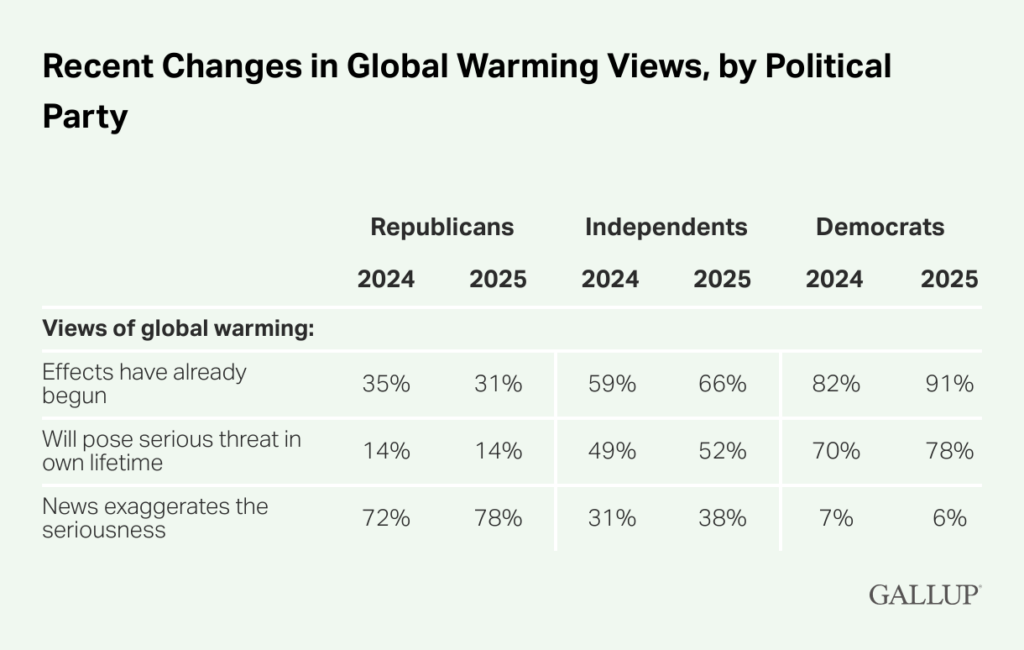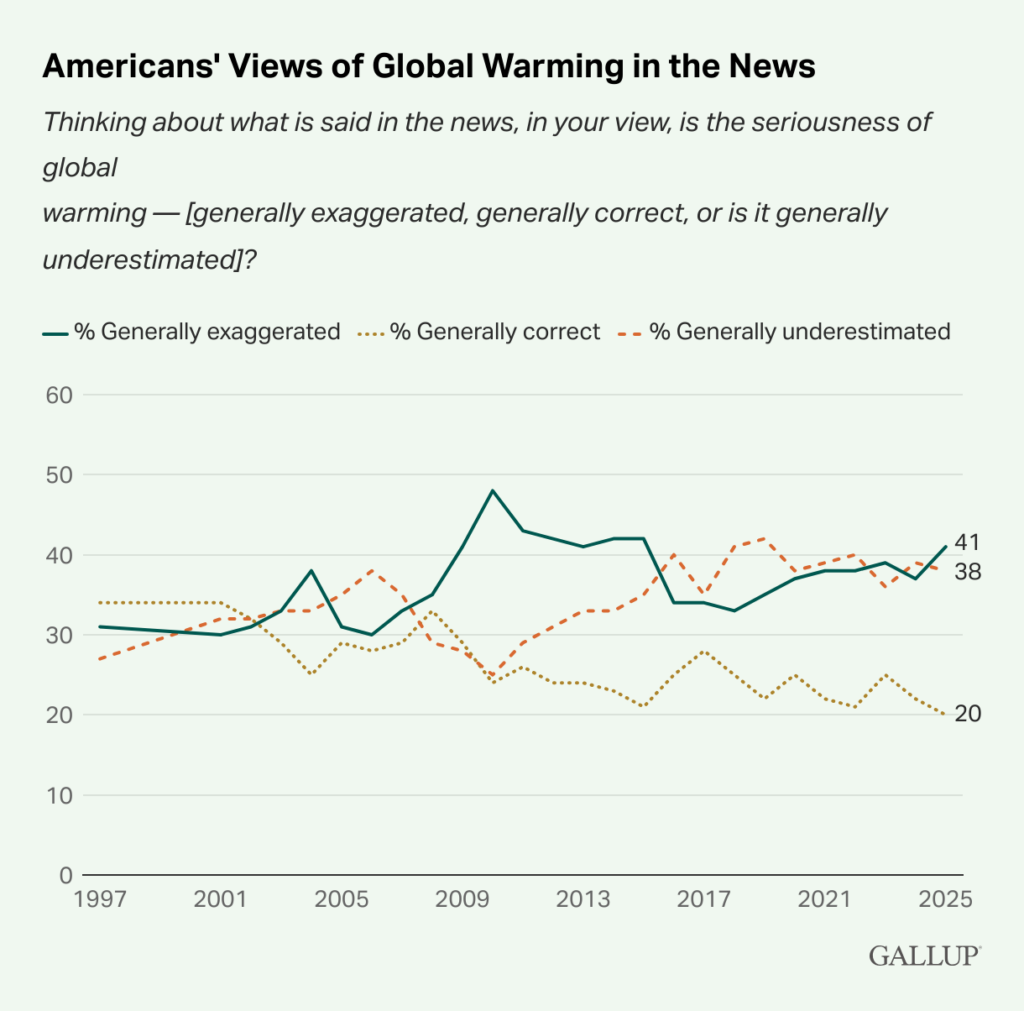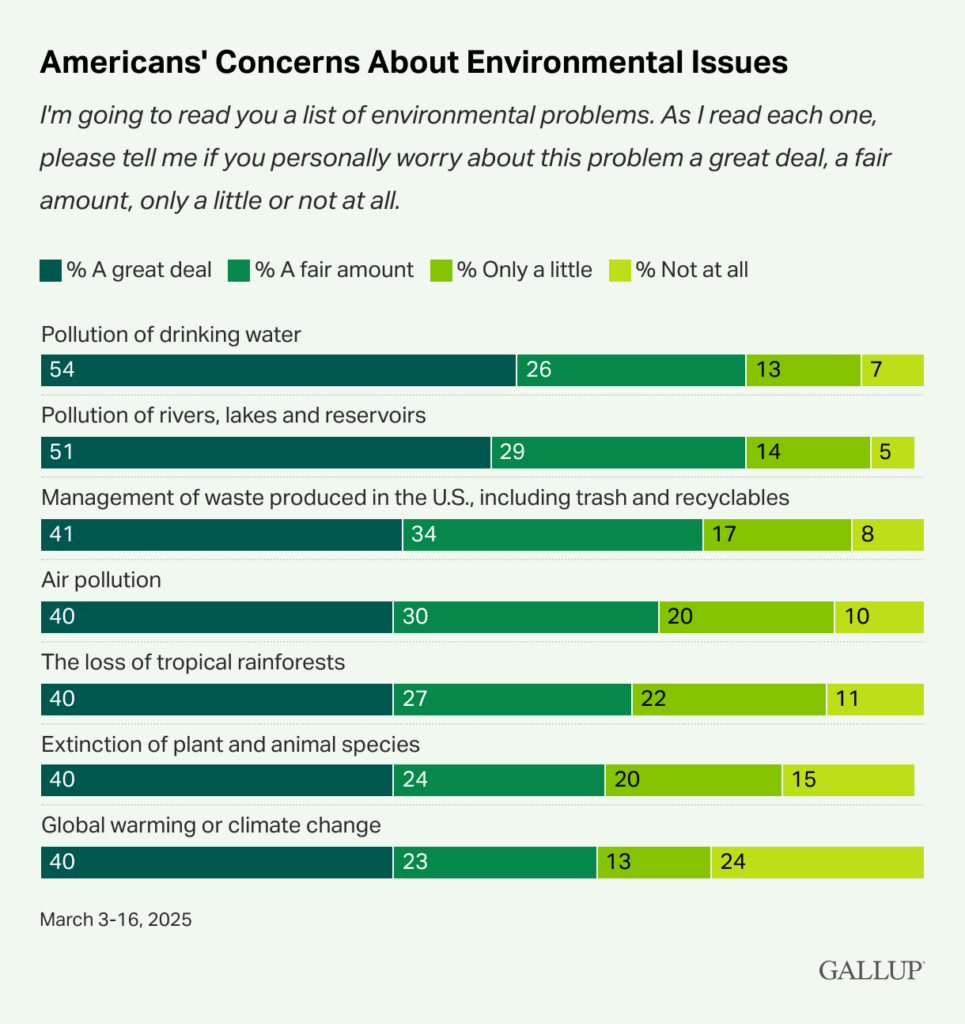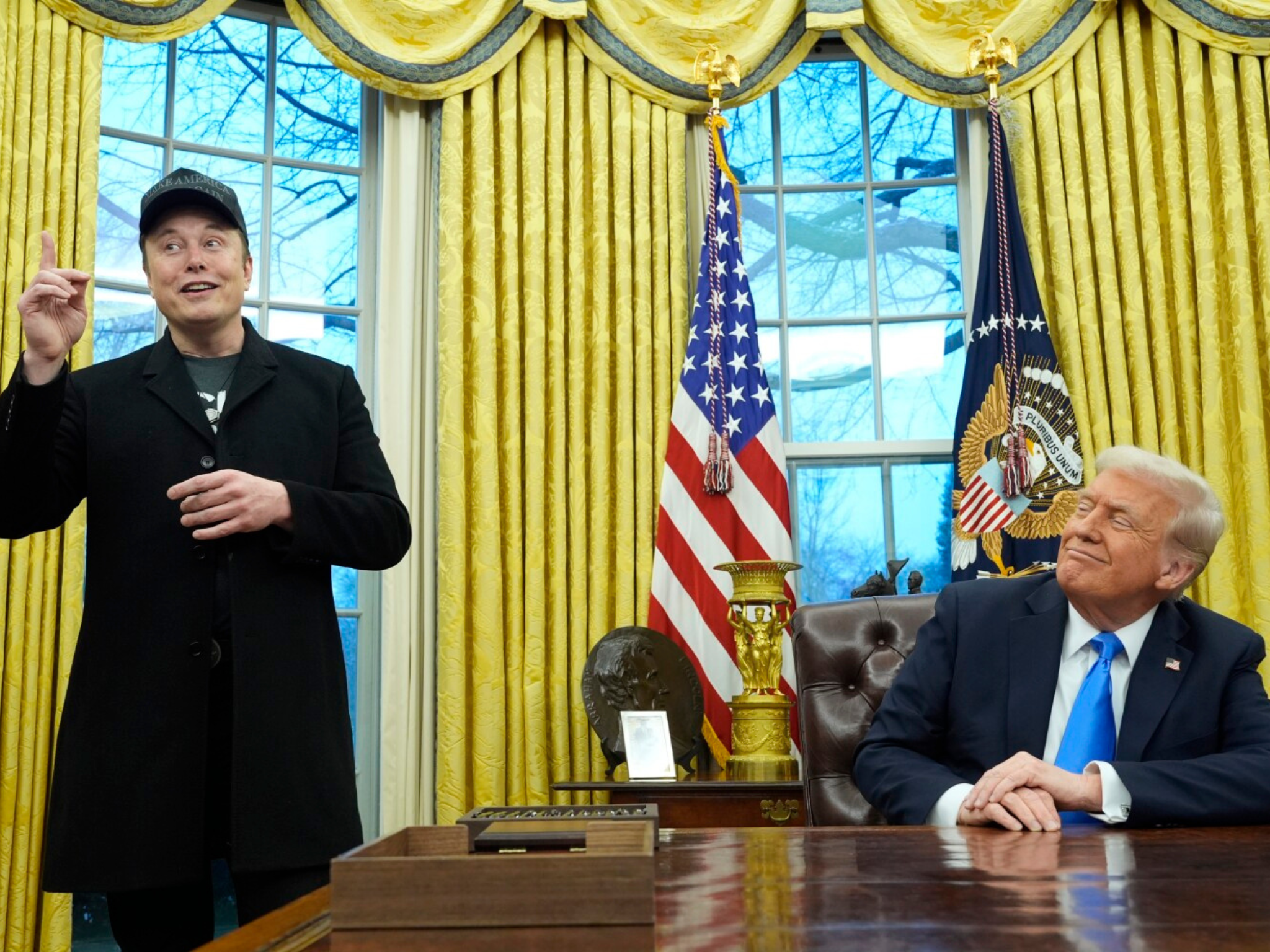5 Mins Read
More Americans now believe climate change is a serious threat, although this is outlined by a huge partisan divide.

This story is part of The 89 Percent Project, an initiative of the global journalism collaboration Covering Climate Now.
Despite voting in a climate denier to the White House, more and more Americans now call the environmental crisis a serious threat.
Underlying trends may explain why that is the case. While 48% of US consumers are now worried about the impact of climate change (up from 44% in 2023), the sentiment is driven by Democrats and independents, 78% and 52% of whom feel this way, respectively.
In contrast, just 14% of Republicans are threatened by the climate crisis, despite last year’s floods hitting red states the most. Still, overall, the belief that climate change is putting Americans at risk is at its highest since pollster Gallup began its surveys in 1997.
This latest poll, covering 1,000 participants from all states and the District of Columbia, shows that women, Gen Z and young Millennials, and non-white consumers are more likely to hold this belief.
The result depict how public opinion differs sharply from that of the Trump administration, which has rolled back a number of actions meant to protect Americans from the crisis.

Does the media exaggerate climate change effects? Americans think so
The percentage of Americans who believe that the effects of global warming have already begun is now 63%, beating the all-time high of 2017 by one percentage point. This is echoed by 91% of Democrats and 52% of independents, both showing increases from 2024, but only 31% of Republicans (compared to 35% last year).
This comes after the country was hit with some of the worst climate disasters last year, including Hurricane Milton, Hurricane Helene, and the wildfires in southern California, which collectively caused $163B in economic damages. A separate Gallup poll last month found that 37% of Americans have personally been affected by an extreme weather event in the past two years.
Meanwhile, 62% of Americans believe temperature increases are a result of human-caused pollution – for context, 99.9% of global climate scientists say climate change is caused by human activity, a consensus as strong as the belief that gravity exists. Again, young women of colour who vote Democrat or skew independent are more likely to feel this way.

Despite all this, 41% of Americans think the media exaggerates the seriousness of climate change, up by 38% last year and the highest in a decade. And the share of respondents who believe the media is underestimating the gravity of the crisis has reduced by one percentage point this year to 38%.
The partisan divide is stark here. While two-thirds of Democrats believe the media should be doing more to highlight the impact of climate change, only 6% of Republicans agree. On the other hand, 78% of the latter say coverage of the crisis is overstated, compared to 6% of blue voters.
“Heavy news coverage of several catastrophic environmental events in the past year could be contributing to these patterns,” explains Lydia Saad, a senior editor at Gallup.
Climate change is low on the list of environmental worries
The Gallup poll, which uses the terms ‘climate change’ and ‘global warming’ interchangeably, assessed Americans’ concerns about a variety of environmental issues.
Climate change is the aspect they’re least worried about, with only 63% naming it as such. The extinction of animal and plant species and the loss of tropical rainforests are more pressing concerns (64% and 67%, respectively).
Far more folks are worried about air pollution (70%), and improper waste management (75%). Water pollution seems to affect Americans the most, with 80% concerned about the pollution of rivers, lakes, and reservoirs, as well as drinking water.

“Americans appear to be taking climate change more seriously today than a year ago, with higher percentages saying the effects of global warming are evident and fearing it will negatively affect them in their lifetime. Yet, their personal worry about the problem is flat,” says Laad.
51% of Americans don’t find climate change to be a serious threat, a higher share than those who do. It’s consistent with other polls that show high rates of climate denialism in Congress and scepticism among members of the public.
The Gallup poll is an example of the action-intention gap that punctures climate action. Ahead of last year’s presidential election, 86% of Democrats, 75% of independents, and 62% of Republicans said they’d vote for candidates who support “aggressive policies to reduce climate change”.
However, the man in charge, Donald Trump, is a climate sceptic. As president, he rolled back over 100 Obama-era environmental policies in his first term, and is building on that again, wrecking a lot of the potential good that could have stemmed from the actions of the previous administrations, which made the largest climate investment in American history with the Inflation Reduction Act.
Trump’s pattern – fuelled by tech billionaire Elon Musk’s cost-cutting initiatives – will continue, but will ordinary Americans end up paying the price?



